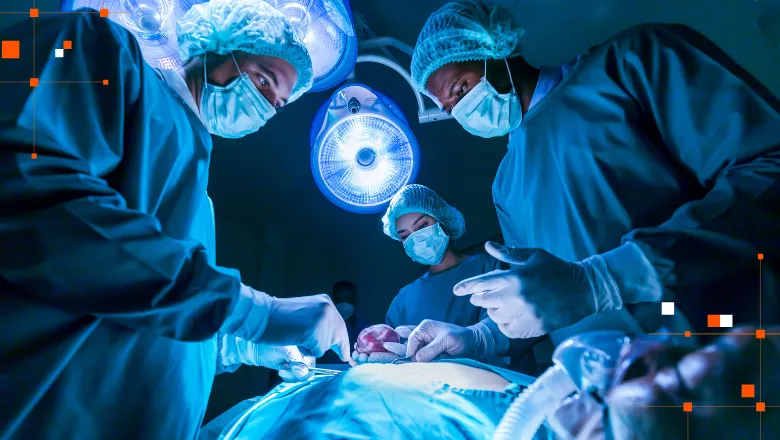This grant from the Royal College of Surgeons of England will enable us to greatly improve surgical training by using AI to analyse and predict surgeon performance, paving the way for more effective, personalised training.
Dr Nicholas Raison, Clinical Senior Lecturer and Consultant Urological Surgeon
11 June 2024
Research team awarded funding to develop new AI models for robotic surgical skills training
A team of researchers from the School of Biomedical Engineering & Imaging Sciences has been awarded a grant worth £25,000 by the Royal College of Surgeons of England for their work developing new artificial intelligence (AI) models for robotic surgical skills training.

A team of researchers from the School of Biomedical Engineering & Imaging Sciences has been awarded a grant worth £25,000 by the Royal College of Surgeons of England (RCSEng) for their work developing new artificial intelligence (AI) models for robotic surgical skills training.
For this project, 45 surgeons of different experience levels will have their hand and instrument movements tracked as they learn to perform robotic surgery using the three main surgical robots used in the NHS - Da Vinci from Intuitive, Hugo from Medtronic and Versius from CMR.
This data will then be used to train AI models to automatically measure and predict the surgeons’ performances. These models will be crucial in helping surgeons train in robotic surgery more effectively and will support the development of the next generation of systems to give feedback to surgeons as they operate.
AI can play an important role in training the next generation of robotic surgeons. This grant from the Royal College of Surgeons of England helps us to test this hypothesis.
Professor Prokar Dasgupta, Chair of Robotic Surgery & Honorary Consultant, Urological Innovation
The project is being funded by the RCSEng's Robotic-assisted surgery research pump-priming grant awards. The aim of the awards is to assist surgeons undertaking research into robotic-assisted surgery, usually in the early stages of their independent research careers.



